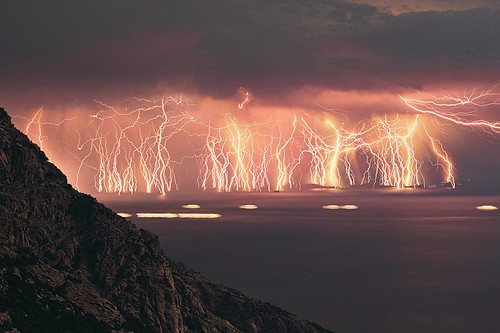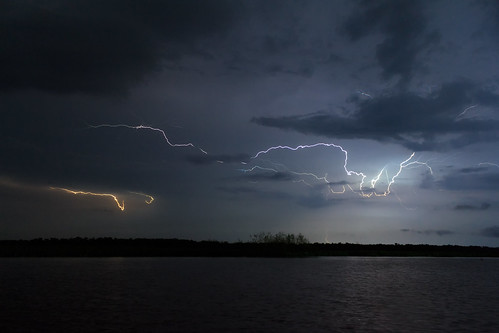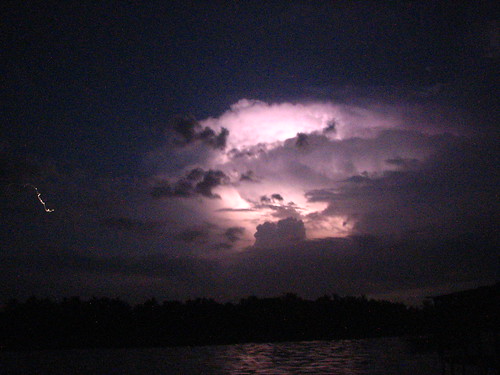As per
Guinness World
Records the area where the Catatumbo River flows into Lake Maracaibo, Venezuela,
"
receives almost 250 lightning flashes per square kilometre each
year. Lightning happens up to 300 nights per year in displays that can last nine
hours." This has also been confirmed by the latest findings of NASA who
have billed the location as the "
Lightning Capital Of The World". The findings
are based on very high resolution data collected over 16 years of observations
made from space.
This phenomenon known as the Catatumbo Lightning (Spanish: Relámpago del Catatumbo)
occurs mainly during April to November and usually develops between the latitude
of 8°30′N 71°0′W and 9°45′N 73°0′W.
As per meteorologists the lightning storms are due to high
winds blowing across the Maracaibo Lake and meeting the cold air of the horse
shoe formed by the high mountain ridges of the Andes, the Perijá Mountains
(3,750 m), and Mérida's Cordillera. The heat and moisture collected across the
plains creates deep convection which produces electrical charges resulting in
continual thunderstorm activity.
Such phenomenon is not limited only to Catatumbo. The village of Kifuka DR
Congo in Central Africa is also witness to such lightning storms and was earlier
known as the "Lightning Capital Of The World" till it was dethroned by NASA
studies whereby Catatumbo got the title. Cheerapunji in Eastern India also
witnesses large amount of lightning per year.

Image from
Flickr is by
costa brava


Image from
Flickr is by
Fernando Flores

Image from
Flickr is by
Verónica Pérez

Image from
Flickr is by
Fernando Flores

Image from
Flickr is by
cerealmonogamy
Location in
Google Earth /
Google Maps
Source of info and more info;











0 comments:
Post a Comment